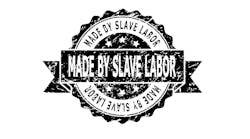The Federal Trade Commission (FTC) has issued a proposed rule to ban most noncompete agreements, making it virtually impossible for employers to impose on either employees or independent contractors virtually any kind of prohibition against working for any competitors in the future.
In its notice of proposed rulemaking, the commission characterized noncompete agreements as “a widespread and often exploitative practice that suppresses wages, hampers innovation, and blocks entrepreneurs from starting new businesses.”
If eventually adopted by the FTC, the rule specifically states that it would be unlawful for an employer to enter into or attempt to enter into a noncompete with a worker; maintain a noncompete with a worker; or represent to a worker, under certain circumstances, that the worker is subject to a noncompete agreement.
The proposed rule would apply to independent contractors and anyone who works for an employer, whether paid or unpaid. It would also require employers to rescind existing noncompetes and actively inform workers that they are no longer in effect.
“The freedom to change jobs is core to economic liberty and to a competitive, thriving economy,” declared FTC chair Lina M. Khan. “Noncompetes block workers from freely switching jobs, depriving them of higher wages and better working conditions, and depriving businesses of a talent pool that they need to build and expand. By ending this practice, the FTC’s proposed rule would promote greater dynamism, innovation and healthy competition.”
So, how does an agency like the FTC—which normally enforces antitrust laws and has no direct jurisdiction under law over employment issues—justify extending its authority to cover this topic? By claiming that it can determine that noncompete agreements are unlawful because they represent an “unfair method of competition.”
Significantly, the FTC also warns that “other types of employment restrictions could be subject to the rule if they are so broad in scope that they function as noncompetes.” Thus, the proposed rule also seeks to restrict the application of some non-disclosure agreements, non-solicitation agreements, training payback requirements and other potential restraints on employee mobility.
The rule also would bar employers from entering noncompete provisions with independent contractors, volunteers, interns, sole proprietors and apprentices. A non-compete agreement would only be allowed when there is a sale of substantially all of a business and the person the non-compete clause restricts is a substantial owner of that business.
Employers can’t afford to wait for the rule proposal to become final before taking actions to prepare, warn attorneys for the law firm of Steptoe & Johnson. “The FTC is taking direct aim at ending noncompete clauses,” they point out. “And as the enforcement actions show, the agency will not simply wait for its rule to become final before it challenges noncompete clauses it deems violate existing antitrust laws.”
The proposed rulemaking notice came as no surprise to those who have been keeping an eye on the FTC, which last November issued a policy statement that its jurisdiction over anticompetitive practices under law is broad enough to extend to these and other employment issues. In that statement, the FTC held it is empowered to counter the effects of company behavior that negatively impacts competitive conditions “whether by affecting consumers, workers or other market participants.”
The commission’s view that this jurisdiction also can stretch to encompass terms of employment was reinforced last July when it entered into a Memorandum of Understanding (MOU) with the National Labor Relations Board (NLRB). At the time, the two agencies said the agreement was designed to “protect workers against unfair methods of competition, unfair or deceptive acts or practices and unfair labor practices.”
Enforcement Already Happening
The commission already has taken strong enforcement actions arising from the theory expanding its jurisdiction. On Jan. 4, the FTC entered into unprecedented consent decrees prohibiting three companies from enforcing noncompete clauses. In the process, it noted that “these actions mark the first time that the agency has sued to halt unlawful noncompete restrictions.”
The FTC asserted that the three companies—Prudential Security, O-I Glass, and Ardagh Group—each engaged in an unfair method of competition by imposing noncompete restrictions on workers in positions ranging from low-wage employees and manufacturing workers to engineers that barred them from seeking or accepting work with another employer or operating a competing business after they left the companies. (In one case, this included banning security guards from taking a job in the same industry—glass manufacturing.)
“The FTC’s proposed rule represents a sea change in how many courts and enforcers would analyze noncompete clauses,” according to the Steptoe & Johnson attorneys. While a number of states have already barred entirely or significantly limited the enforcement of noncompete agreements, the proposed rule is broader and expressly supersedes any state law to the extent the state law provides less protection.”
They explain that if the proposed rule is adopted, noncompete clauses would simply be illegal on their face, with very few carve outs and exceptions, and no court could be expected to consider any justifications put forward by employers for such noncompete agreements.
Offering their advice in regard to what the future may hold, the Steptoe & Johnson attorneys suggest that prudent employers should:
• Determine if and how its employment contracts can act to restrict employees from working for competitors.
• Recognize that some noncompetes are not clearly labeled as such. Employers should carefully scrutinize contract terms limiting an employee’s use of certain broadly defined “trade secrets,” customer lists or other acquired knowledge at their next job, and training payback clauses, as these restrictions can serve to limit employee mobility.
• Evaluate whether any existing noncompete clauses are particularly restrictive, and may become targets of enforcement efforts even before the FTC rule is final. “While the recent enforcement actions suggest that noncompetes arising in highly concentrated industries or affecting highly-skilled workers are worthy of scrutiny, the FTC’s rhetoric suggests that noncompetes affecting low-wage workers and perhaps other groups should also be the focus of close attention,” the attorneys observe.
• Consider participating in the rulemaking process by filing comments during the notice-and-comment process. This can be done through a trade association or with the assistance of an attorney with regulatory experience.
• Develop a plan for compliance should the rule go into effect. Final rules typically become effective either immediately or within a short period. Getting a jump on determining which employment contracts will need to be altered, and what contract provisions might be appropriate to secure a company’s intellectual property and trade secrets, is key.
In addition, the attorneys stress, “The message is that while the FTC is issuing a rule to ban this practice, until such a rule becomes final the FTC will continue to pursue noncompetes under existing antitrust law—perhaps but not necessarily focusing on the more egregious examples.”




